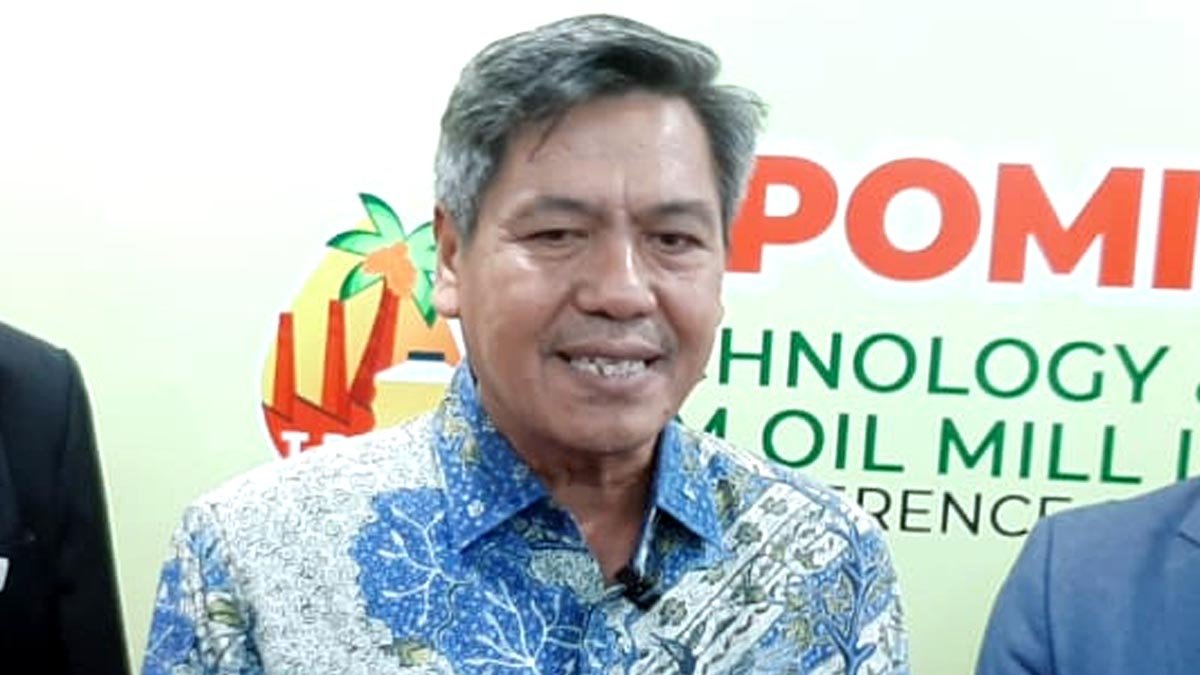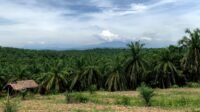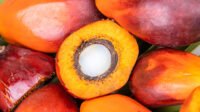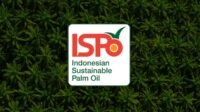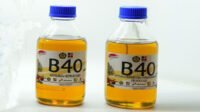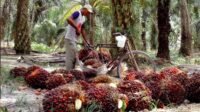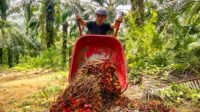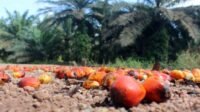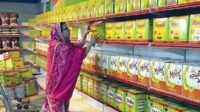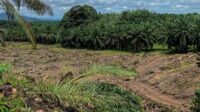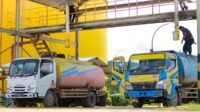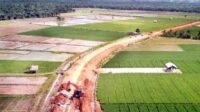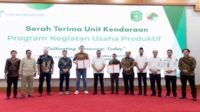PALMOILMAGAZINE, BANDUNG — The Indonesian Ministry of Industry is intensifying efforts to strengthen downstream development in the palm oil sector by transforming palm oil waste into high-tech industrial materials. According to Putu Juli Ardika, Director General of Agro Industry at the Ministry, Indonesia is currently working to catch up with countries like Thailand that have advanced in processing oil palm empty fruit bunches (EFB).
“Thailand already has factories producing various materials from palm oil waste. But we don’t want to be left behind. Indonesia has now begun localizing this technology, and we’re already able to produce key components independently,” Putu explained during a seminar attended by Palmoilmagazine.com in early July 2025 in Bandung.
He noted that EFB fractionation machinery and technology are now being developed domestically, including through collaborations with universities. One such pilot project is underway in Bogor, where small-scale oil palm plantations serve as testing sites.
Also Read: Ministry of Industry and PTPN IV Join Forces to Boost Palm Oil Talent at SMK-SMTI Pontianak
“The technology is progressing rapidly. One notable project in Banten is already moving beyond basic incineration of palm waste. Instead, the waste is being processed into value-added products such as porous paper and biodegradable plastic for eco-friendly packaging,” Putu added.
The focus is now shifting toward high-value applications. For example, EFB, once merely burned or composted, can now be processed into activated carbon, which serves as a key raw material for supercapacitors—essential components in energy storage systems for electric vehicles and electronic devices.
“Imagine—waste that was once worth only USD 10–80 per ton can now be turned into products valued at USD 140 or more once converted into activated carbon and supercapacitors,” Putu emphasized.
The Ministry views this downstreaming initiative as a cross-agency collaboration to build a sustainable and innovation-driven palm oil industry ecosystem. It also reflects a broader strategy to reduce Indonesia’s dependence on exporting crude palm oil (CPO).
“We can’t rely solely on exporting raw palm oil anymore. We must pursue value addition. The government is serious—many ministries are involved, and coordination is ongoing,” Putu stressed.
With domestically developed machinery, university-led research partnerships, and strong inter-agency policy support, Indonesia is now on the right track to turn palm oil waste into a new pillar of the country’s green industrial future. (P2)

